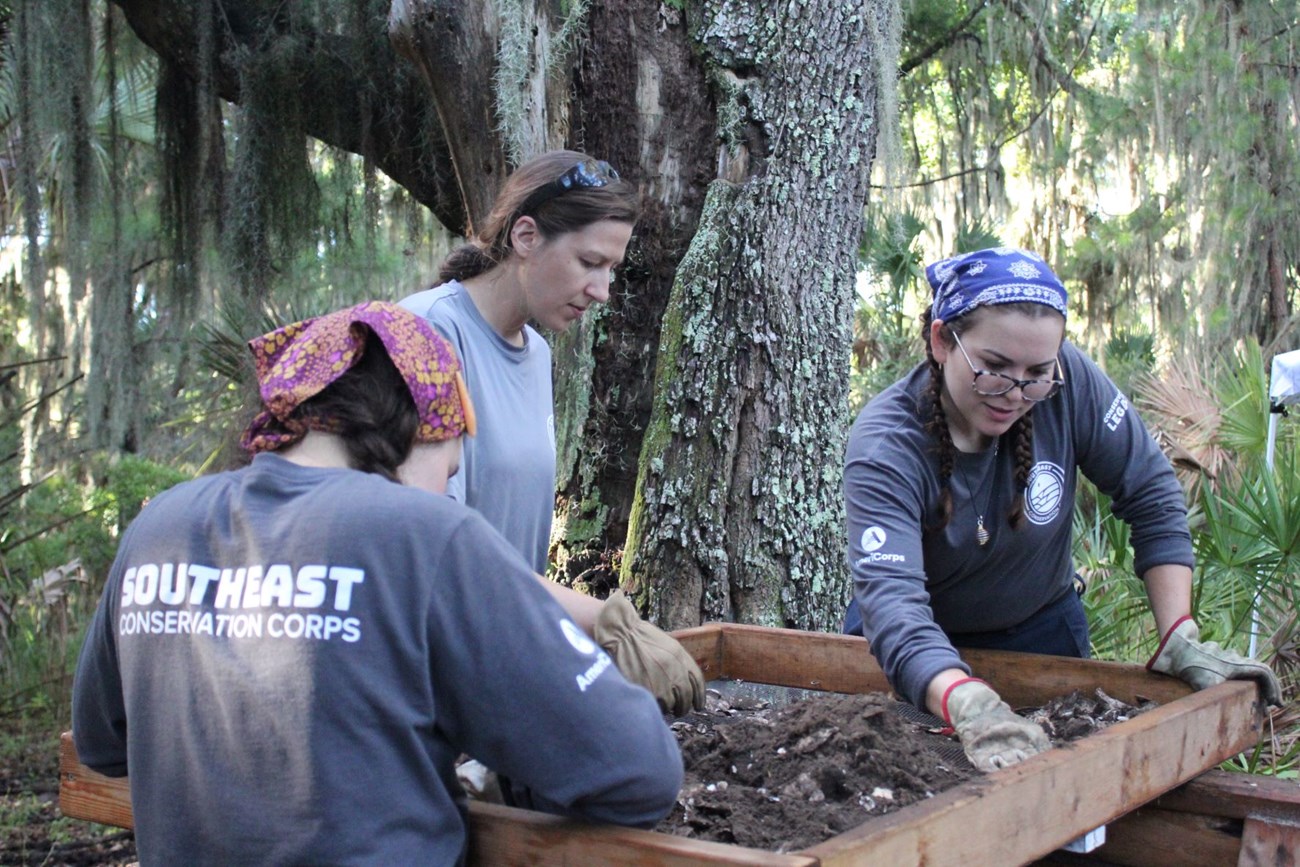Last updated: May 15, 2024
Article
Urban Archeology Corps

The Urban Archeology Corps (UAC) is a national program for paid work experiences in NPS archeology. Its aims are: 1) support youth employment in archeology; 2) increase diversity in archeology; 3) conduct archeological work on NPS lands; and 4) create a pipeline for employment to federal service. Since the program's start in 2012, over 200 people have held internships to do archeological work in NPS parks.
What do UACs do?
UAC projects may include any aspect of archeological investigation. Past projects have consisted of historical research and writing, Section 110 and Phase I-II-III investigations, disaster mitigation, collections processing, development of public education materials, and more. Many UACs also provide brief experiences in other park operational areas.
UACs range from one intern at a time to a crew of several people. Participants may be supervised by NPS staff, a UAC-funded archeologist or project manager, or a partner team leader. Projects typically run 6-10 weeks, but may go longer. Participants may work at one park or multiple parks.
Who should apply?
UAC participants are oftentimes students or recent graduates looking to get paid experience in archeology. UACs are not field schools, and participants generally cannot use them to meet field school requirements for their universities or job applications.
UACs also welcome anyone interested in learning more about the National Park Service and its work. Teams have included historians, writers, museum specialists, interpreters, and others.
Who qualifies for a UAC?
It depends! Some UAC projects require participants to be age 15-34. Others have no age limit, but do require participants to be enrolled in a degree- or certificate-seeking program or be a recent graduate. See below for links to our partners' websites for more information.
How do I apply?
UACs operate through national partnership agreements with youth-serving partners and Cooperative Ecosystem Units. Find information about upcoming opportunities on our partners' websites, including how to apply and deadlines for applications. Most UAC programs take place in the summer.
Where have UACs worked?
UAC park hosts change every year. Projects have taken place at:
- Chickamauga & Chattanooga National Military Park with Southeast Conservation Corps
- Colonial National Historical Park with National Council for Historic Preservation
- Eleanor Roosevelt National Historic Site with Binghamton University
- Fort Frederica National Monument and Cumberland Island National Seashore with Southeast Conservation Corps
- Frederick Douglass National Historic Site with Greening Youth Foundation
- Gulf Islands National Seashore with Southeast Conservation Corps
- Home of Franklin D. Roosevelt NHS with Binghamton University
- Longfellow House National Historic Site with Binghamton University
- Martin van Buren National Historic Site with Binghamton University
- Medgar and Myrlie Evers Home National Monument with National Council for Preservation Education
- National Capital Parks-East, Washington, DC with Groundwork Anacostia River DC and the Greening Youth Foundation
- Ninety-Six National Historical Site with Southeast Conservation Corps
- Petersburg National Battlefield with HistoriCorps
- Richmond National Battlefield Park with Groundwork Richmond, VA
- Santa Monica Mountains National Recreation Area with Mountains Recreation and Conservation Authority
- Vanderbilt Mansion National Historic Site with Binghamton University
